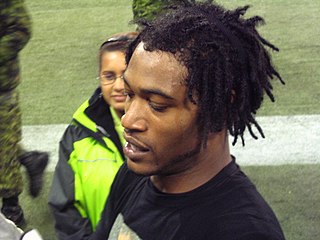A Quote by Patrick Lencioni
You have to build trust among team members so that people feel free to admit what they don't know, make mistakes, ask for help if they need it, apologize when necessary, and not hold back their opinions.
Related Quotes
Teams use trust as currency. If it is in short supply, then the team is poor. If trust abounds, the members of the team have purchase power with each other to access each others’ gifts, talents, energy, creativity, and love. The development of trust then becomes a significant leadership strategy. Trust creates the load limits on the relationship bridges among team members
When team members openly and passionately share their opinions about a decision, they don't wonder whether anyone is holding back. Then, when the leader has to step in and make a decision because there is no easy consensus, team members will accept that decision because they know that their ideas were heard and considered.
If you're married to an entrenched non-apologizer, it won't help to doggedly demand one. Some folks lack the self-esteem required to take responsibility for their less than honorable behaviors, feel remorse, and offer a heartfelt apology. And many people are so hard on themselves for the mistakes they make, they don't have the emotional room to admit vulnerability and apologize to a partner.
There are some communities that feel you shouldn't give them the publicity, because it's just going to make people curious. There are communities who feel we need to fight them tooth and nail. What we have seen, though, is that ignoring them does not make them go away. If we sit back and let them have free reign, we lose members of our community.
"If I make deposits into an Emotional Bank Account with you through courtesy, kindness, honesty, and keeping my commitments to you, I build up a reserve. Your trust toward me becomes higher, and I can call upon that trust many times if I need to. I can even make mistakes and that trust level, that emotional reserve, will compensate for it. My communication may not be clear, but you'll get my meaning anyway. You won't make me "an offender for a word." When the trust account is high, communication is easy, instant, and effective."
The best way to apologize is to let the customer vent first. Don't interrupt, just take notes and make empathetic noises. You can even tell the customer that it makes you mad too. Second, ask the customer what their speed of need is. Tell them what they ant to hear. That you apologize, that you understand how they feel, that you are meeting with the appropriate people to get a resolve, and that it will be done in 24-hours.
I think the simplest way to put it is to say that Donald continues to need to prove to his father that he's the tough guy, the killer, the best, you know, that he's winning all the time, and above all, that he's not weak. And the ways to be weak in my family were to be kind, to admit mistakes, and to apologize.
Once you have grace," I said to him, "you are free. Without it, you cannot help doing the things you know you should not do, and that you know you don't really want to do. But once you have grace, you are free. When you are baptized, there is no power in existence that can force you to commit a sin-nothing that will be able to drive you to it against your own conscience. And if you merely will it, you will be free forever, because the strength will be given you, as much as you need, and as often as you ask, and as soon as you ask, and generally long before you ask for it, too.


































